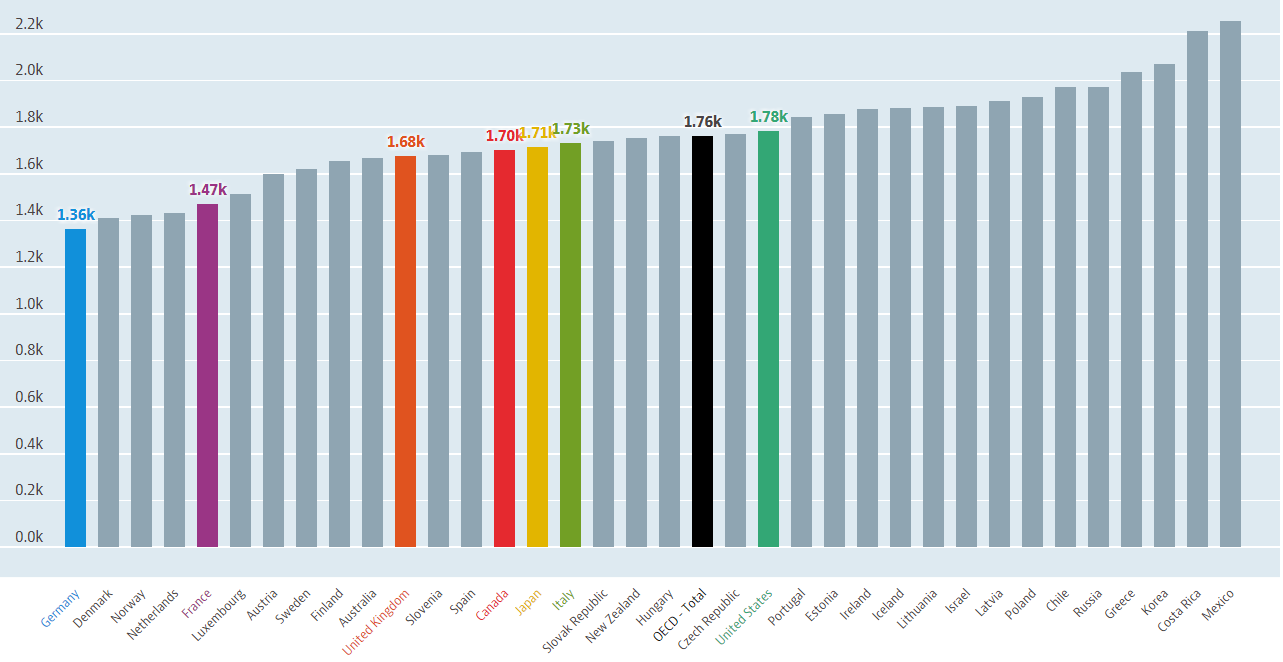by
Whitney Leach*
New data from the Organization for Economic Cooperation and Development (OECD), whose 35 members include much of the developed world and some developing nations, found the average Mexican spends 2,255 hours at work per year – the equivalent of around 43 hours per week.

Greeks work the longest hours in Europe, at an average 2,035 hours per year.
At the other end of the spectrum, German workers put in a comparatively meagre 1,363 hours per year. That’s 892 fewer hours spent at work per year than Mexicans. Workers in the US are in the middle with 1,783 hours.
Different work cultures
Differing cultural attitudes and socio-economic factors play a key role in the amount of hours employers expect from workers.
In Mexico, long-standing fears about unemployment, coupled with lax labour laws, mean that the maximum 48-hour workweek is rarely enforced.
In third-placed South Korea, longer working hours have been part of a drive to boost economic growth.
But following concerns about social problems, including a low birth rate and slowing productivity, President Moon Jae-in has led a push to reduce the country’s working hours and give workers the “right to rest”.
Despite having a term to describe death by overwork ("karoshi"), the average Japanese worker does 1,713 hours per year – below the OECD average.
This might come as a surprise in light of the country’s reputation for having a workaholic culture, which has led to calls for the government to impose a cap on overtime work.
Fewer hours, more productive
Despite enjoying the shortest working hours among OECD member countries, Germany manages to maintain high productivity levels. In fact, the average German worker is reported to be 27% more productive than his or her British counterpart.
The Dutch, French and Danes also work fewer than 1,500 hours per year on average. Just 2% of Danish employees – who enjoy the best work-life balance in the world – put in long hours compared to the OECD average of 13%.
*Formative Content
*First published in Weforum.org




 By: N. Peter Kramer
By: N. Peter Kramer

